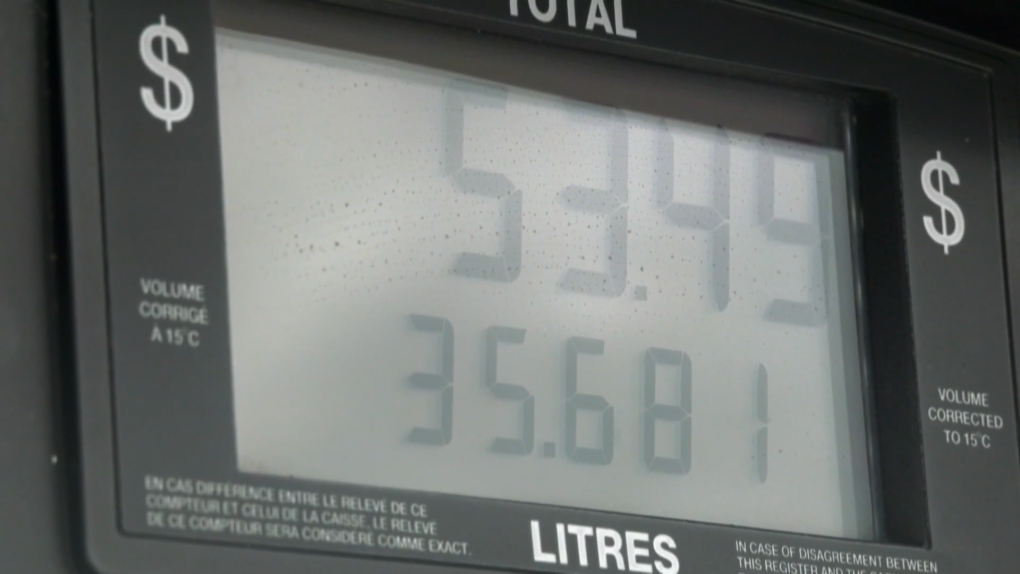Alberta records highest inflation rate in Canada for February: StatCan

New data from Statistics Canada ranks Alberta as having the highest increase in inflation over the last year amongst all Canadian provinces and territories.
The latest Consumer Price Index report released Tuesday found that Alberta’s inflation rate rose for the second straight month to 4.2 per cent, from its previous 3.4 per cent in January.
The recent uptick is said to have primarily been caused by a spike in natural gas prices, which have risen by 15.1 per cent year-over-year.
Vijay Muralidharan, the director of R Cube Economic Consulting, says the increase stems from an uptick in transportation costs and the maintenance season taking place at natural gas refineries across North America.
“So in February we had about 1.6 million barrels per day of outages due to refinery maintenance predominantly in Texas and there’s going to be another 1.5 million barrels per day of outages coming up in Chicago,” he said.
“This is critical because there’s pipeline connectivity in Chicago, so the price of gasoline diesel goes up, by de-facto gasoline prices in Alberta also go up.”
Muralidharan adds that Alberta will likely see a 10 to 15 cents per litre increase at gas pumps because of the province’s removal of its relaxed fuel tax and the upcoming federal carbon tax increase on April 1.
Other expert economists like Richard Masson, the CEO of Alberta Petroleum Marketing Commission, said electricity prices are also expected to see an uptick with the removal of rebates on electricity prices that have come off over the past year or so.
He notes that the cost of shelter itself will additionally continue to rise as more people move to Alberta.
“We’ve been attracting a lot of people moving into the province and so rents have been going up and housing prices are strong and interest costs are higher for housing,” Masson said.
“I think housing is a component that’s not likely to soften in the near term as people continue to move here, because relatively speaking, it looks better than some places like Vancouver or Toronto.”
Calgary leads Canada’s major cities year-over-year in terms of price growth with an uptick of 5.1 per cent, while Edmonton was the second highest at 4.2 per cent, according to Statistics Canada.
Rising rent
The cost of shelter nationwide is up 6.5 per cent and continues to remain one of the biggest drivers of inflation.
Melanie Clarkson from Calgary says she’s completely heartbroken to find out that her mother will soon see an $800 per month increase to rent her apartment, marking a 70 per cent uptick.
“What’s worse is that she didn’t have heat for all of January, her apartment was around 52 degrees to 56 degrees, it still hasn’t been fixed, she didn’t have hot water in her kitchen and still she was notified of this increase,” Clarkson said.
The recent increases for several Calgary apartments are causing many to advocate for rent control, which continues to be shut down by Alberta Minister of Seniors, Community and Social Services Jason Nixon.
“Mr. Nixon, in his email to me, said quite proudly that 11,000 people have been given rent subsidies, but that’s not very many in a province of more than four million people,” Clarkson said.
“That’s nothing to brag about and it certainly isn’t anything that I would even tell anybody, I think it’s a little embarrassing. My mom is so stressed, it’s just crippling for her and she doesn’t deserve it, nor does anyone.”
Grocery prices cooling
At the grocery store, costs nationwide went up by an average of 2.4 per cent, compared to one year ago, which marks the first time since October 2021 that food prices rose more slowly than overall inflation.
Stuart Smyth, professor in the Department of Agricultural and Resource Economics at the University of Saskatchewan, says these numbers came as a surprise, considering western Canada is still feeling the pinch.
“I’m really pleased by the trend that we’ve been seeing over the last couple of months, but what worries me, is that coming up in less than two weeks, the federal government’s really going to jump the carbon tax again,” he said.
“So I think any gains we’ve seen in price improvements, in food prices are going to be eroded on the first of April when the federal government dramatically increases the carbon tax.”
Smyth notes that the carbon tax will be passed down to much higher transportation costs which will impact grocery store prices significantly.
He also touched on the exchange rate of the Canadian dollar, which is down compared to the American dollar, as being another factor in cost increases.
“When investors see continually high Canadian deficits and increasing tax rates to provide government with operating revenues that reduces their confidence in our economy, which then contributes to the lower value of the Canadian dollar compared to the American dollar, the euro or those kinds of currencies,” he said.
View original article here Source









